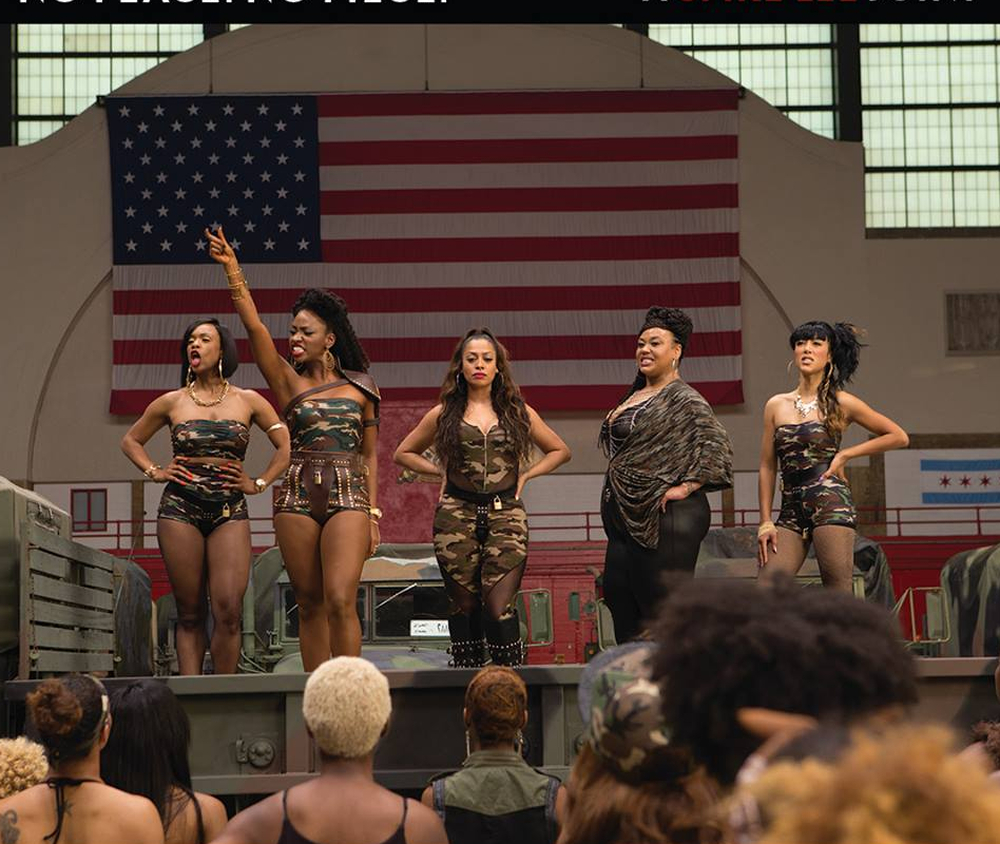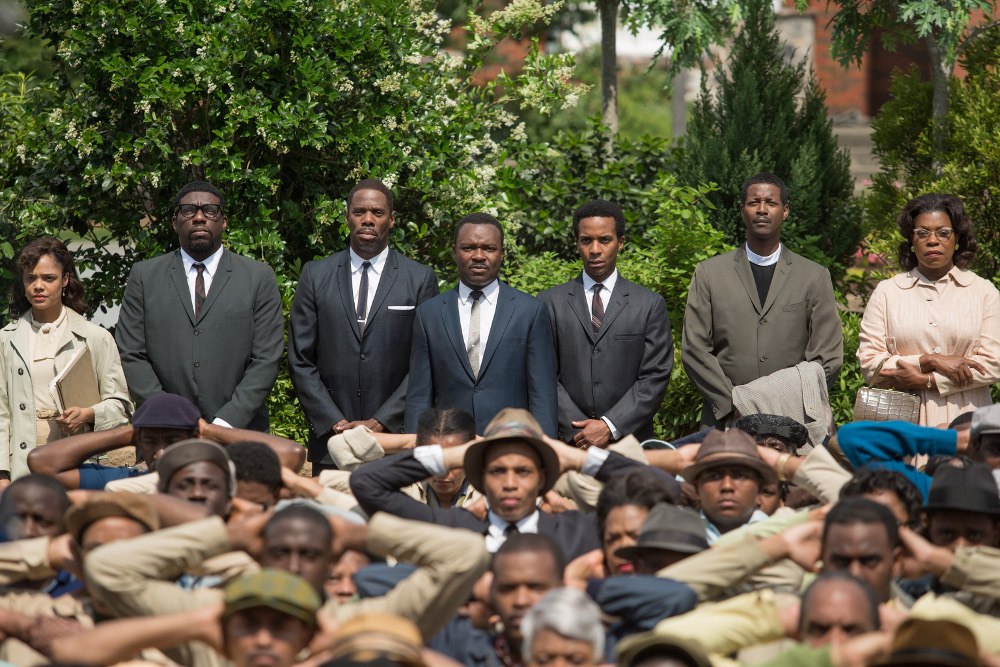US film director Spike Lee.
This time last year, the curtain was raised on the whitest awards season in recent memory. This was despite the presence of a black woman as the president of the Academy, and a well-reviewed biopic of Martin Luther King from an African-American director. So overwhelmingly Caucasian were the bulk of the nominees that #OscarsSoWhite started trending on Twitter.
Spike Lee recently commented that it is easier to become a black president of the US than a black studio head, correctly assessing a business still defined by decisions made by white people.
“The industry at large remains painfully homogeneous in its ethnicity and social background,” says Screen International’s Andreas Wiseman. “However, film and TV audiences continue to diversify. Around 40% of the US population is non-white. That diversity won’t be fully reflected in the films selected at the Oscars this year [where the acting frontrunners include usual suspects Cate Blanchett and Leonardo DiCaprio], but the size of those audiences will help to slowly move the dial. The online players are responding to that.”
While recent years have seen Netflix documentaries such as Virunga and The Square score Oscar nominations, this looks set to be the first year where two fiction films made by streaming platforms may figure in the race for the key categories. Yet more striking is that both these contenders are films with predominantly black casts dealing with issues that Hollywood often dodges.
In October, Netflix unveiled Beasts of No Nation, an uncompromising drama starring Idris Elba as a fearsome warlord in charge of an army of child soldiers in an unnamed African country. It’s a film that steers clear of cliche – and the need to filter the atrocities through a white viewpoint.
But its troubled route to the small screen (before being picked up by Netflix, the film’s budget came from a†bond company) was “without a doubt” down to the colour of the cast, according to the director, Cary Fukunaga.
“The studios are in the business of making money, so if the numbers show that X subject delivers Y amount of money, then they are going to finance those projects,” he said to the Guardian earlier this year . “As long as the films are about this white person’s issue and that white person’s issue, they’re going to continue to make those films.”

A scene from Chi-Raq.
Next month sees the release of Amazon Studios’ Chi-Raq, a blistering comeback for director Spike Lee that takes a satirical yet impassioned look at escalating gun crime in the US (the title hat-tips slang referencing the similarity between murder rates in Chicago and Iraq). The script’s urgency and topicality – during the five weeks of production, 65 people were shot and killed in the city – has led to controversy, with the families of victims and the mayor of Chicago expressing concern over Lee’s intentions.
(The director hit back, saying that it was the crime itself that was giving the city a bad name, not his movie.) But as the first post-Ferguson film to deal with issues of racism, poverty and weaponry in contemporary America, it’s an undeniably vital addition to a season dominated by films possessed by the past .
Lee has remained outspoken throughout his career, on topics from the government’s handling of Hurricane Katrina to racism within the entertainment industry, but has recently struggled to secure an audience – and a budget – for his films. His “black vampire” film, Da Sweet Blood of Jesus, was funded through Kickstarter, while the Brooklyn-based drama Red Hook Summer failed to take even $500 000. Despite the timeliness of Chi-Raq and the starry cast (Samuel L Jackson, John Cusack, Jennifer Hudson), the road to production wasn’t easy – until the new outfit stepped in.
“We tried to get the script made several years ago, and Spike and I met with all the major studios and they just didn’t get it,” says co-screenwriter Kevin Willmott. “Spike met with Amazon at Sundance and then we had a reading of the script for them and they were in. It was amazingly simple.”
Amazon’s $15m (£9.9m) outlay for Chi-Raq represents a substantial investment in a film that focuses on a minority narrative from a director who isn’t exactly a safe commercial bet. Like Beasts, Chi-Raq will have a limited theatrical release before being available to watch online.
“There are economic reasons behind those decisions,” says Wiseman. “Studies have shown that the growing proportion of ethnic minorities in the US and UK are over-represented among buyers of cinema tickets and in digital film consumption.”
On TV, Amazon and Netflix have also offset a disappointing landscape for LGBT characters with groundbreaking shows such as Transparent and Orange Is the New Black. The companies are young and willing to take risks, with Netflix recently plunging $50m into an unconventional monster movie directed by Korean director Bong Joon-ho and starring Tilda Swinton and Jake Gyllenhaal.
But it remains to be seen whether the Academy will respond positively to Beasts and Chi-Raq. The two major films with black characters that have excelled with the Academy in recent years have been The Help and 12 Years a Slave, which saw wins for Octavia Spencer and Lupita Nyong’o – but playing a maid and a slave, respectively. Last year’s Selma snub was seen as a clear sign that black agency is still feared by the voters.

A scene from Selma.
“David Oyelowo’s performance deserved at least a mention,” film-maker John Akomfrah told the Guardian earlier this year . “He didn’t get it because he was playing a black character who was in control or was attempting to be in control, and that much is indisputable.”
In March, Selma‘s director, Ava DuVernay, concurred. “The studios aren’t lining up to make films about black protagonists,” she said . “Black people being autonomous and independent.”
This year has seen the NWA biopic, Straight Outta Compton, become a surprise success, making $200m worldwide, while the diversely cast Fast & Furious 7 broke records with $1.5bn. A UCLA study from March showed that it’s not audiences who are the problem, but rather “an industry culture that routinely devalues the talent of minorities and women”.
Beasts and Chi-Raq are both passionate polemics about black characters dealing with seemingly insurmountable odds without help from kindly white folk. They also have unconventional release strategies, which might put off the more traditional voters. It’s quite possible that #OscarsSoWhite will be trending again very soon.
“I’m hopeful that might not be accurate, but if it is, it’s not a big surprise,” says Willmott. “You can’t be nominated if they don’t make those films. The surprise is when there are several African-American nominees.” – (c) Guardian News & Media Ltd, 2015